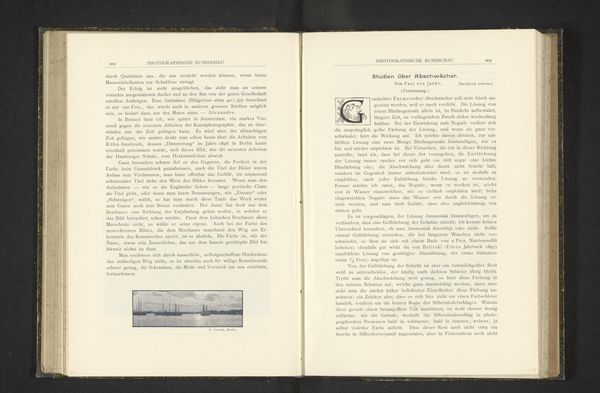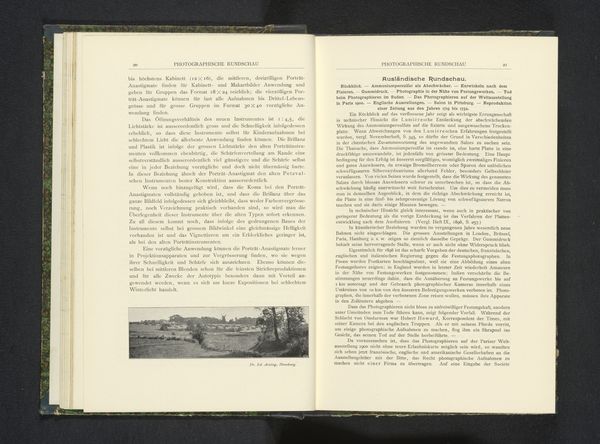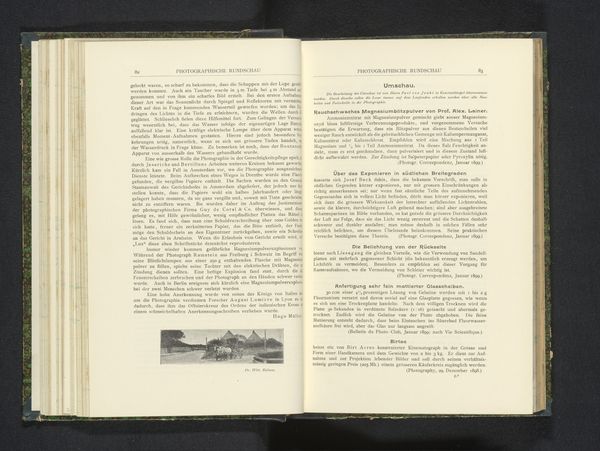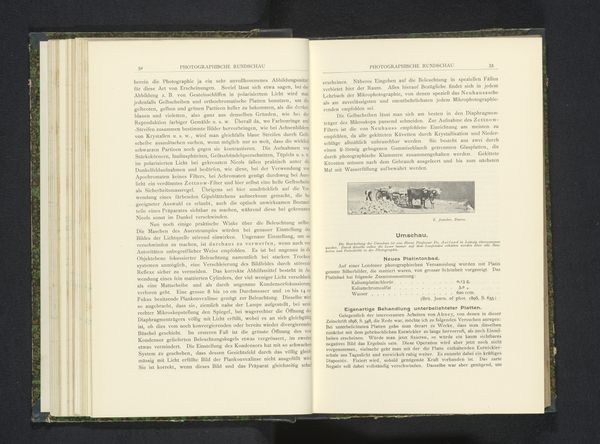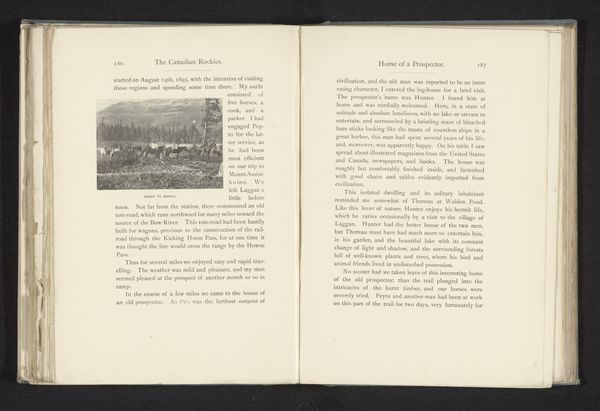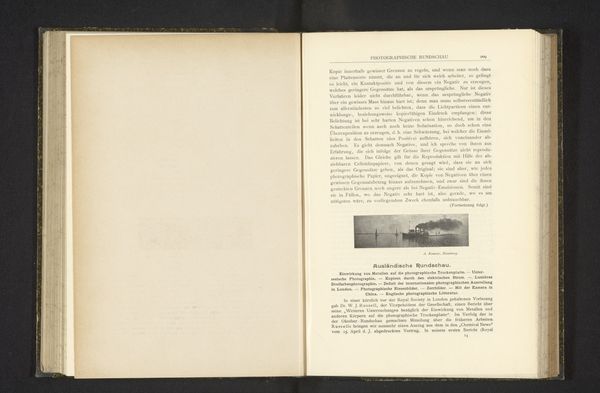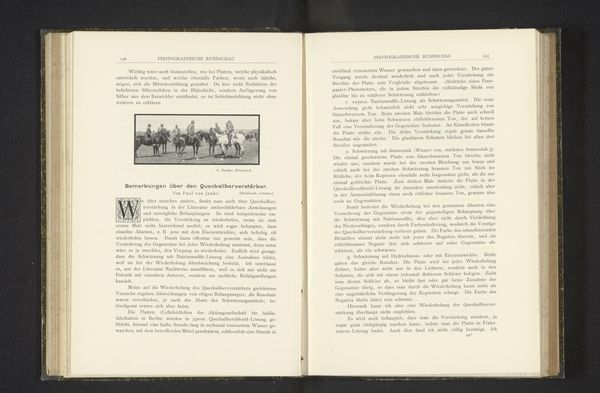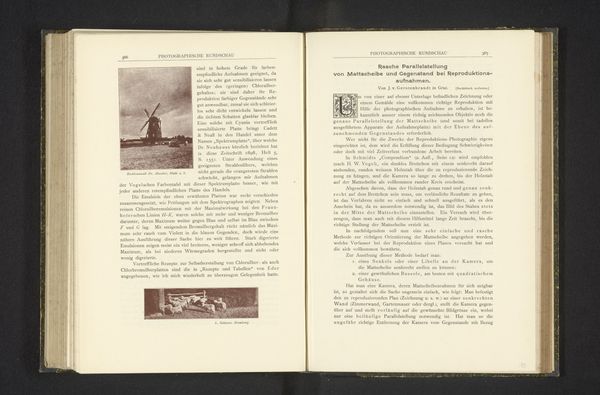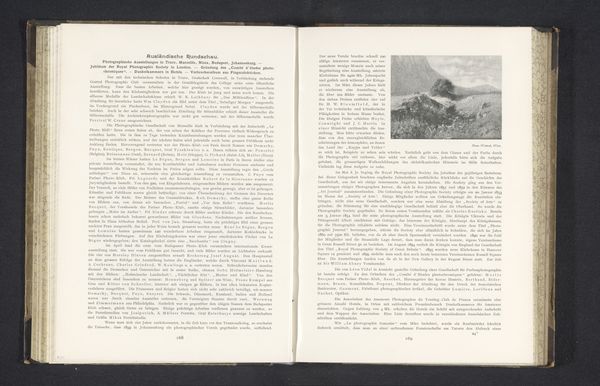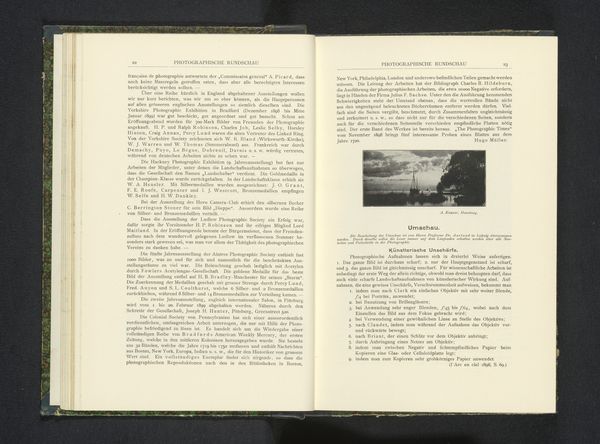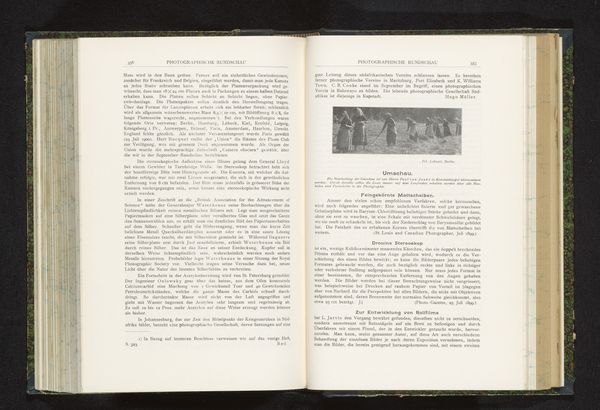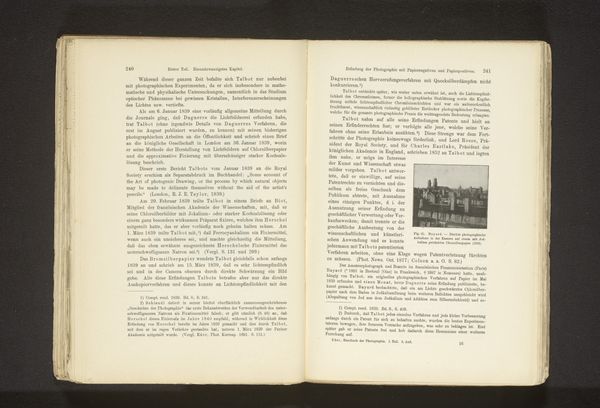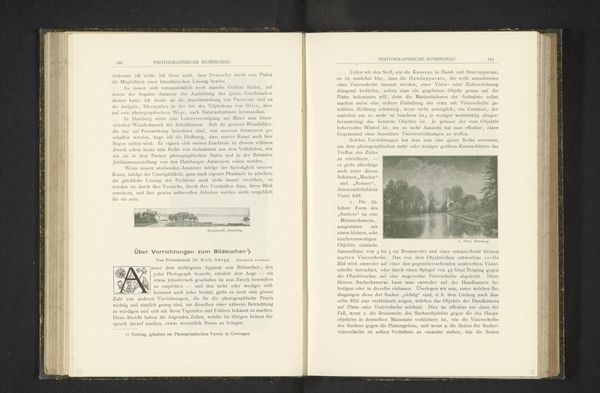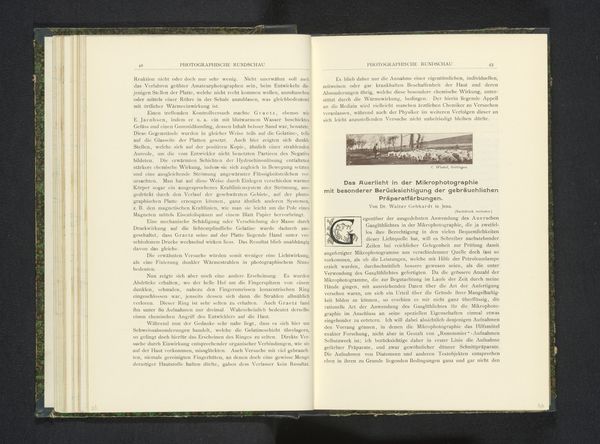
Dimensions: height 20 mm, width 85 mm
Copyright: Rijks Museum: Open Domain
This photograph of a river in a city was made by G.M. Kanning. It is a silver gelatin print, a process that involves coating a base material, like paper, with light-sensitive silver halide crystals. The image itself, a muted gray, is a direct product of this chemical reaction, influenced by the duration of light exposure and the development process. The gelatin print was a popular method, due to its capability to reproduce fine details, that found widespread use in commercial photography, facilitating the mass production of photographic images. In its time, the production of photographic images entailed a considerable amount of work, from the labor-intensive preparation of photographic materials to the intricate manipulation of light and chemicals in the darkroom. This contrasts with the almost effortless image-making made possible by modern digital cameras. Understanding the materials and processes involved allows us to appreciate the labor, skill, and social context embedded within the image. It challenges us to reconsider the value we place on images, especially in an age of digital abundance.
Comments
No comments
Be the first to comment and join the conversation on the ultimate creative platform.
